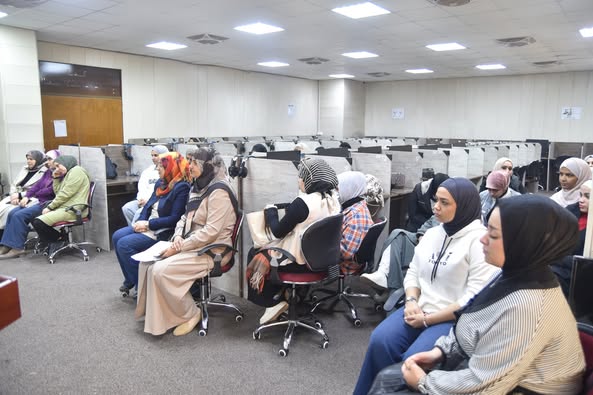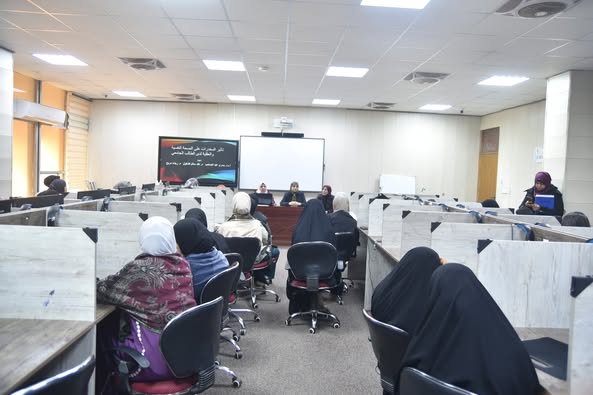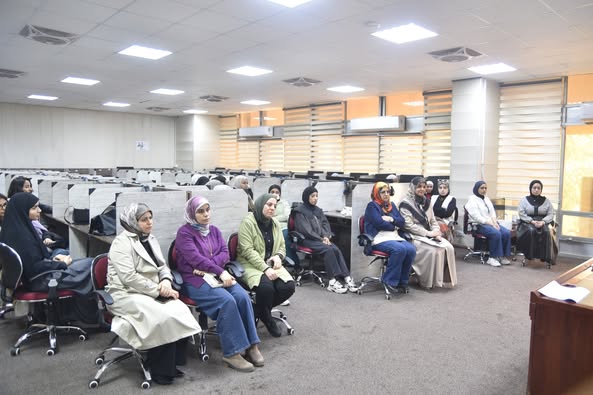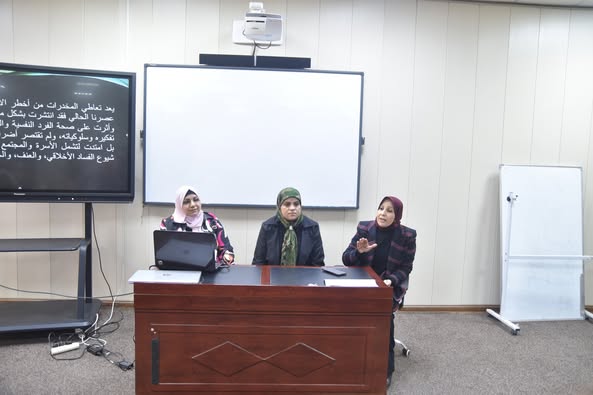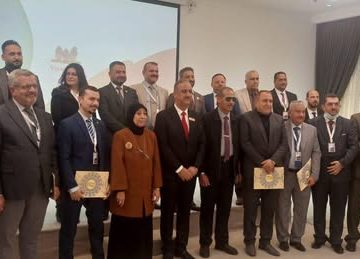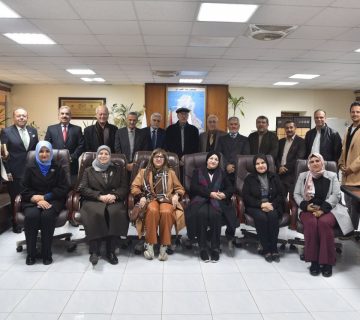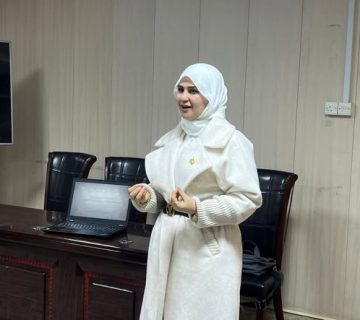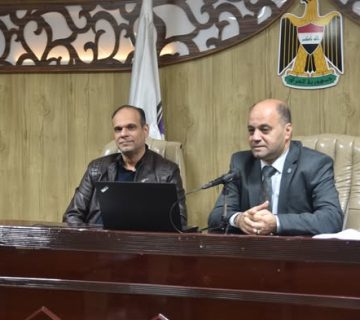Under the patronage of Professor Dr. Sameera Naji Khdim, Dean of the College of Science for Women, the Educational Guidance and Psychological Counseling Unit, in collaboration with the Computer Science Department, organized a workshop titled “The Impact of Drugs on the Mental and Psychological Health of University Students.” The workshop was presented by Assistant Dean for Scientific Affairs and Student Affairs, Dr. Yousra Abdul-Sahib Seifuddin, Dr. Raja’ Muraiah, Head of the Computer Science Department, and Dr. Hind Salem Kashkoul. The event was held in the Smart Hall of the department, with the participation of faculty members and students from the college and the department.
The workshop began with a definition of drugs as natural or synthetic substances that affect the central nervous system, leading to changes in the physical and mental functions of the individual. These substances are sometimes used for medical purposes, such as pain relief or the treatment of certain diseases, but they are often misused for illegal or recreational purposes, leading to addiction and serious health and social problems.
The workshop covered two main types of drugs: (1) Natural Drugs: Such as opium (derived from the poppy plant) and cannabis (derived from the hemp plant). (2) Synthetic Drugs: Such as heroin and crystal meth.
The effects of drugs were categorized into:
-Physical Effects: These include fatigue, loss of appetite, sleep disturbances, and long-term damage such as liver and heart damage.
-Psychological Effects: These include anxiety, depression, hallucinations, and loss of concentration.
-Social Effects: These lead to social isolation, deteriorating relationships, and increased crime rates.
Addiction occurs when the body becomes dependent on the drug, making it challenging to stop using it despite the adverse effects. Treatment requires specialized programs along with psychological and social support.
Prevention and treatment of drug abuse require joint efforts from individuals, communities, and governments to provide necessary awareness and care.
University students, being a vital part of society, are particularly vulnerable to drug addiction due to factors like lack of religious commitment, inadequate family supervision, or association with negative influences. This highlights the need for increased awareness to avoid this affliction, which harms society. Combating drug abuse requires collective efforts and participation through awareness programs, family supervision, guidance, and ongoing follow-up to ensure student well-being and prevent harm.
Among the workshop’s recommendations was the proposal to integrate curricula in schools and universities to educate young generations about avoiding drug abuse by highlighting its dangers and negative societal impacts. The workshop also emphasized the critical role of psychological and educational counseling committees across all departments in monitoring and educating students.
